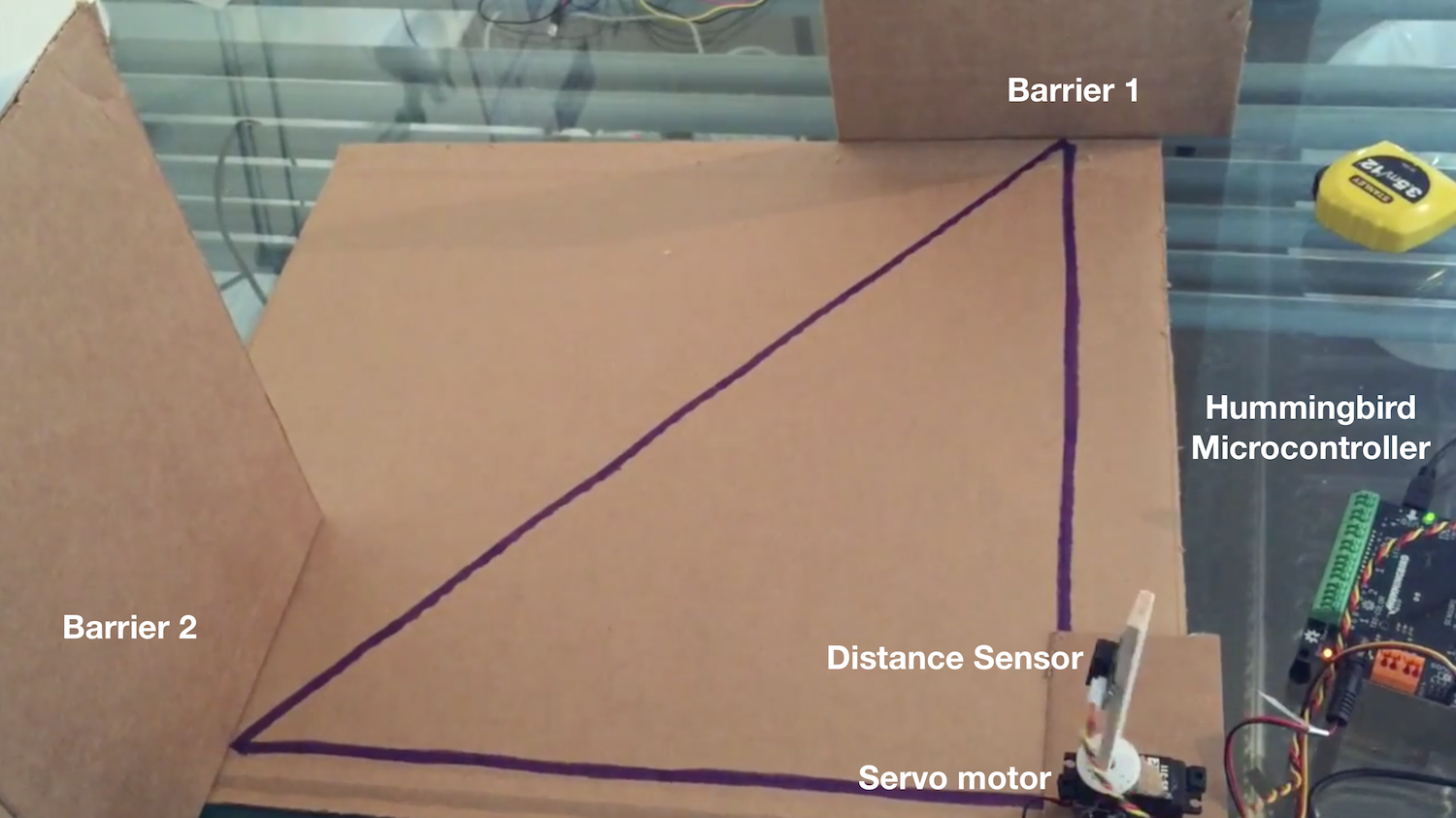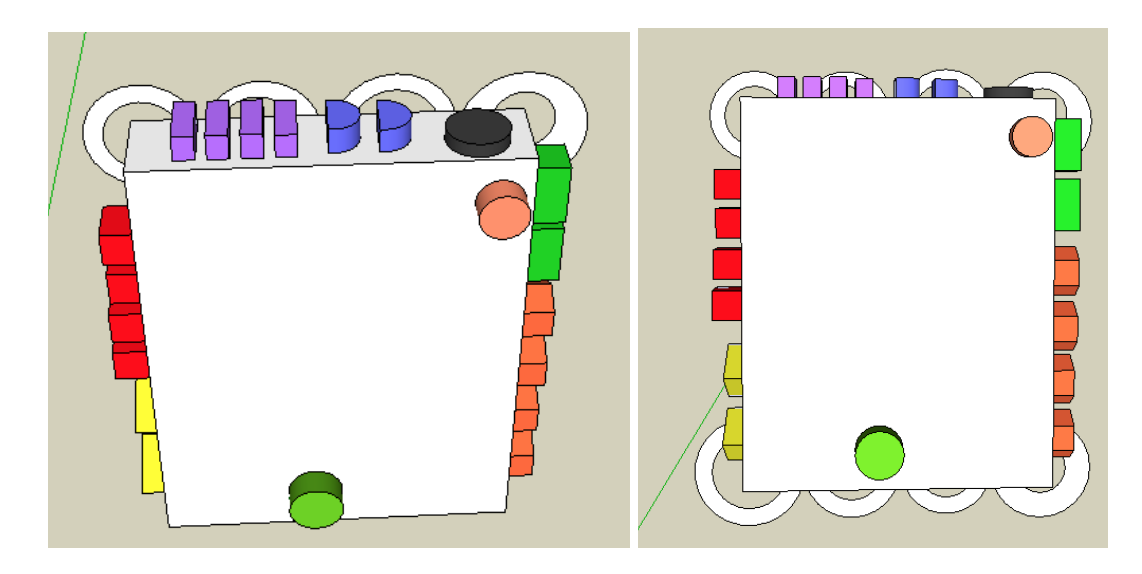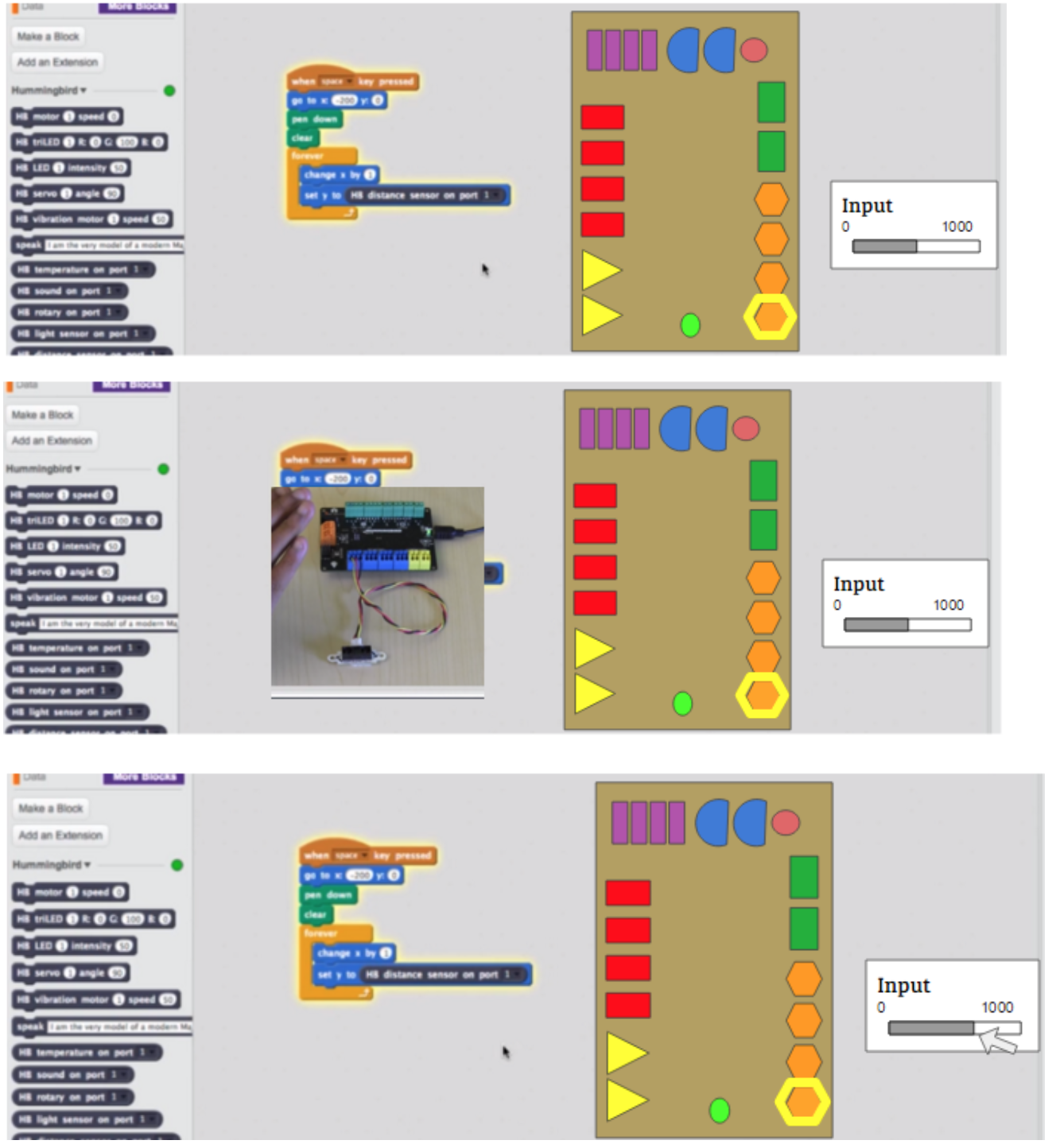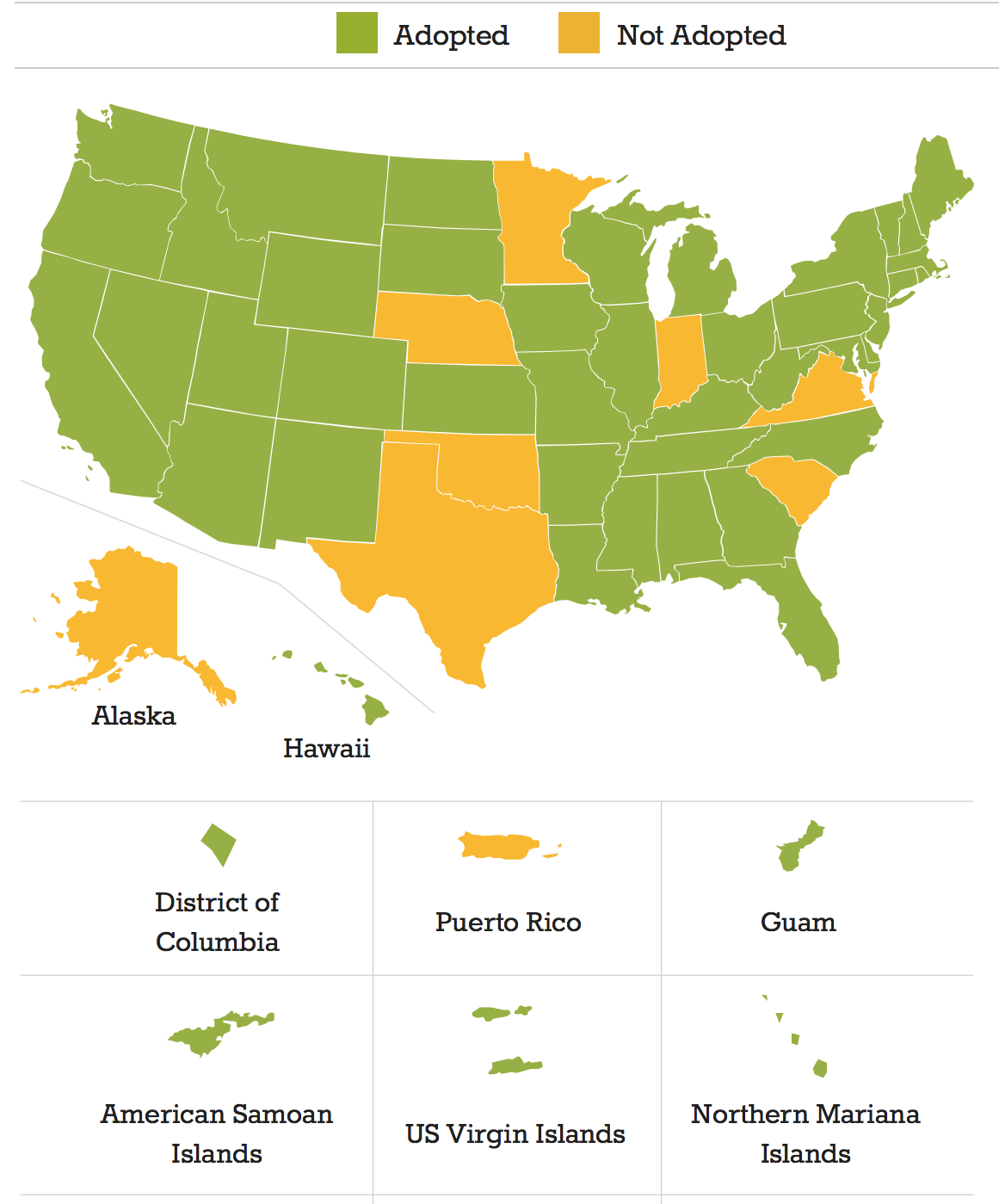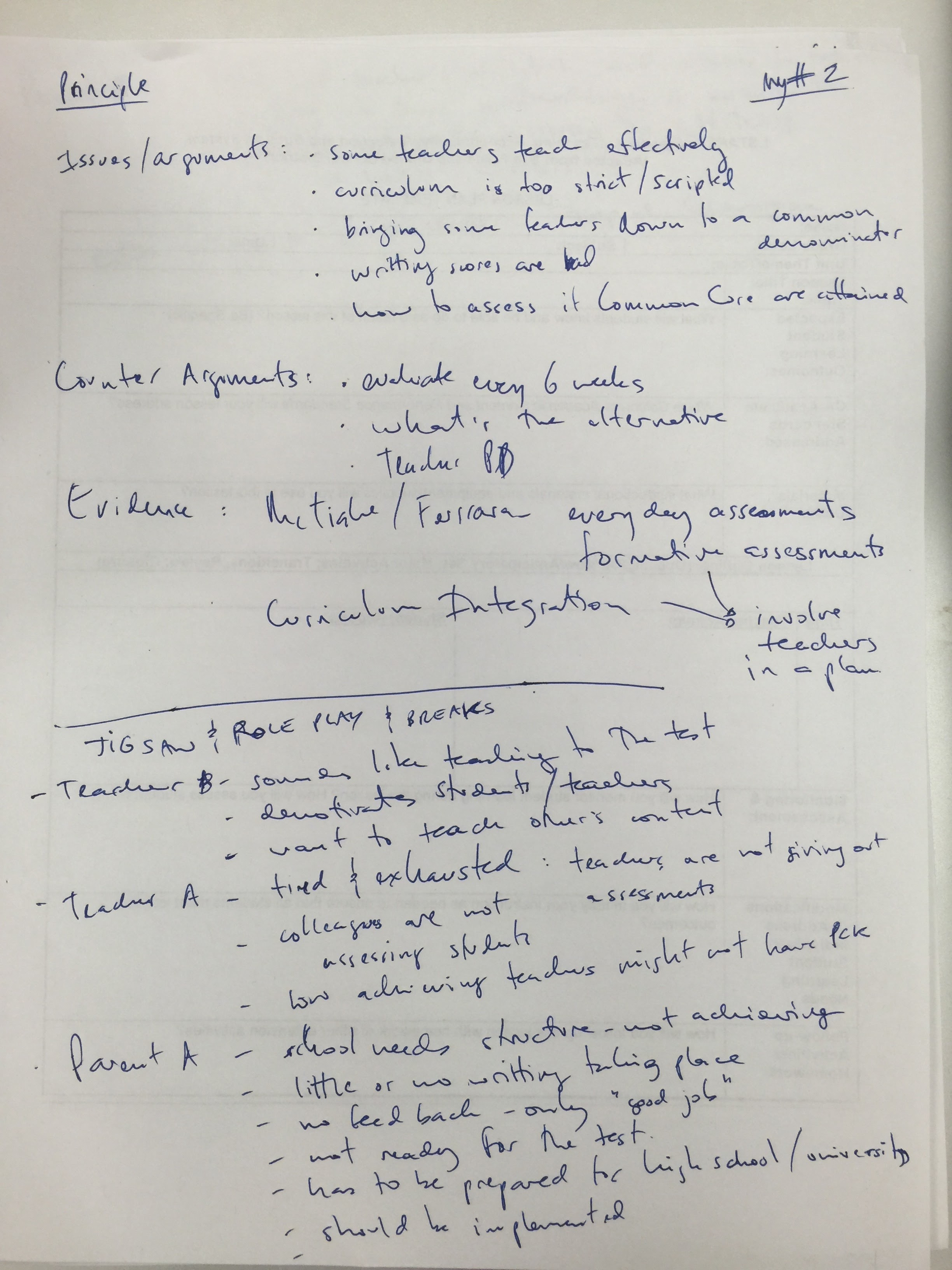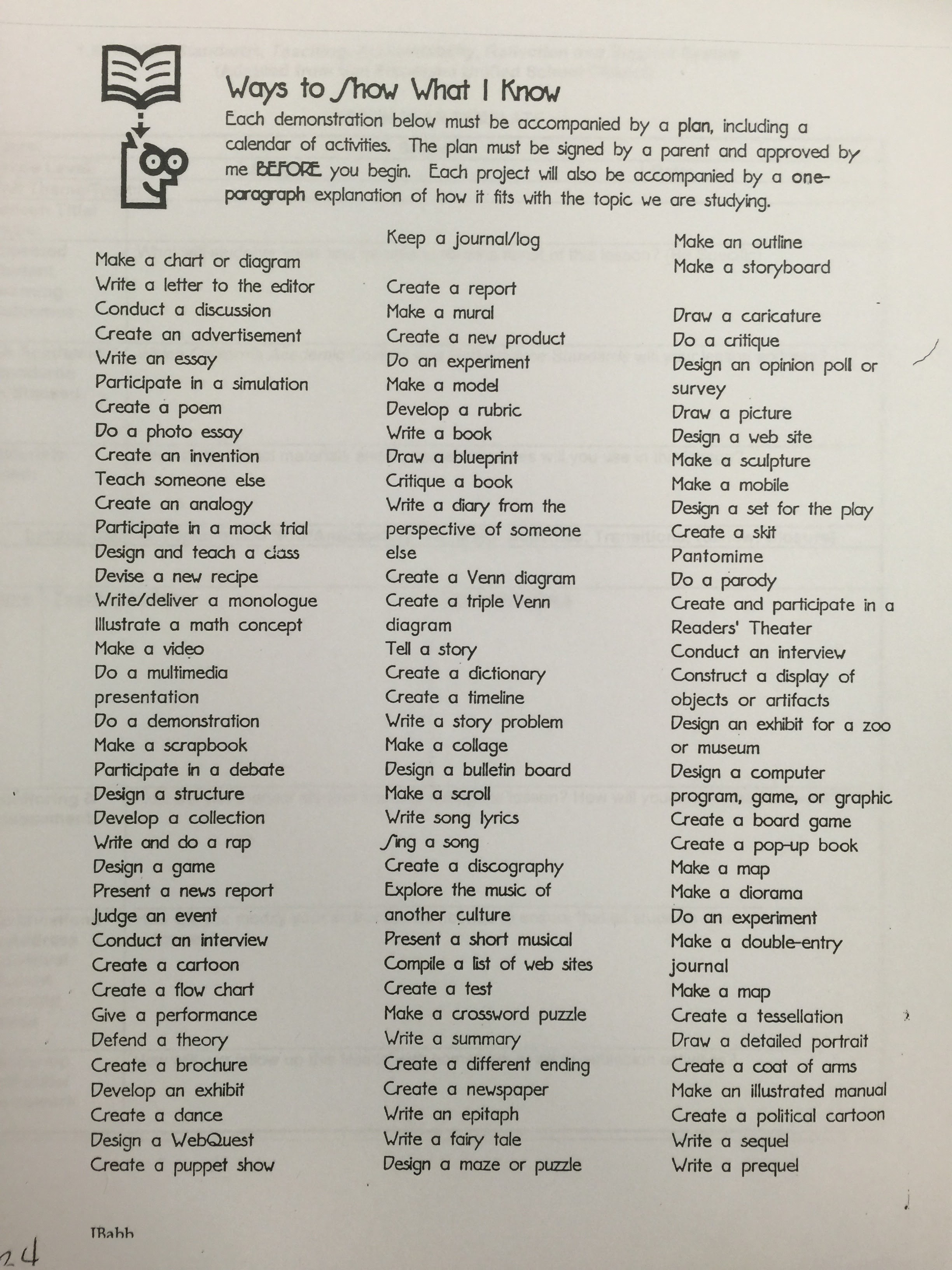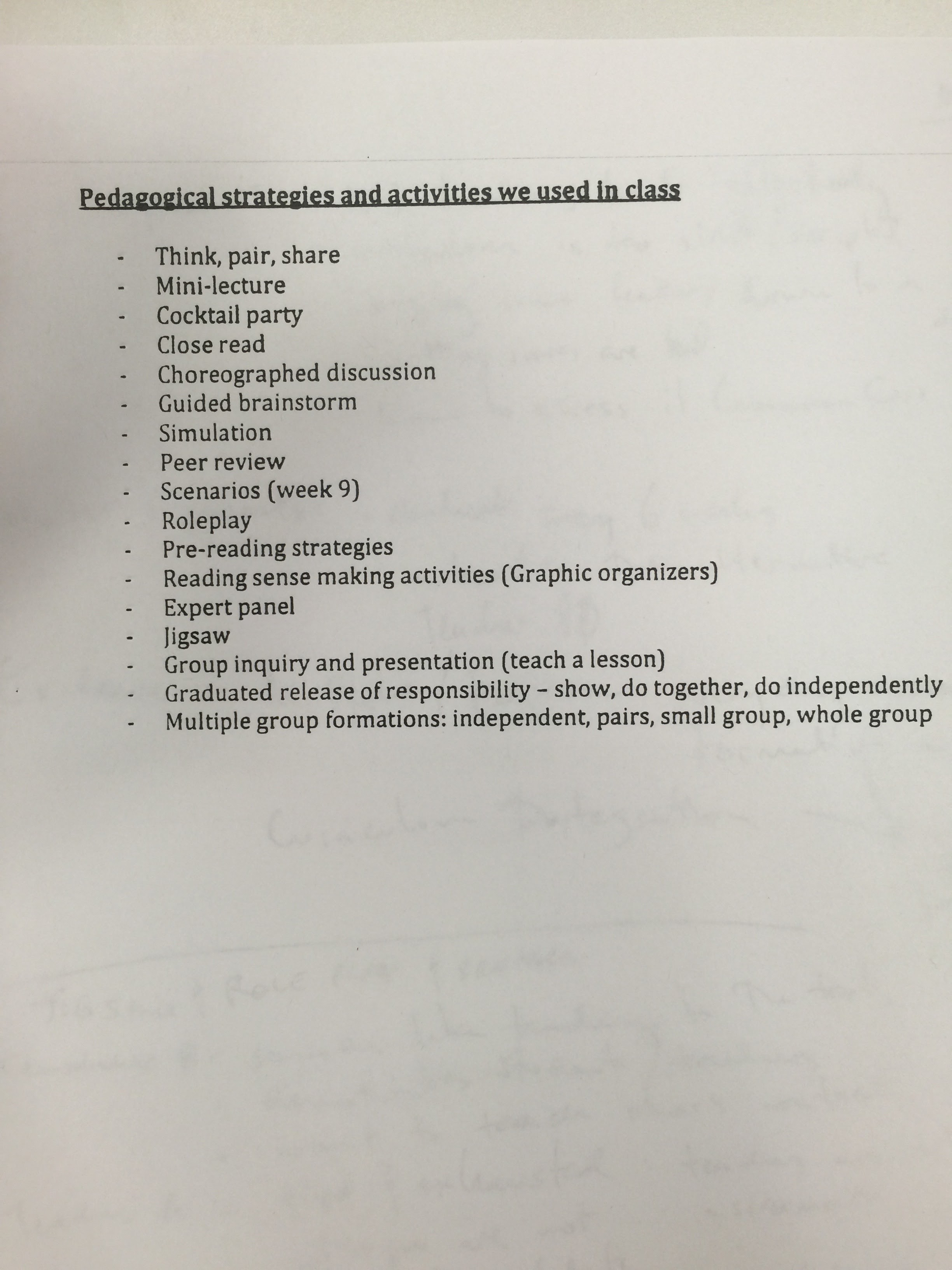Heller, J.I., Daehler, K.R., Wong, N., Shinohara, M., & Maritrix, L.W. (2012). Differential effects of three professional development models on teacher knowledge and student achievement in elementary science. Journal of Research in Science Teaching, 49 (3): 333-362.
- Study’s sample
- 6 states
- 270 elementary teachers
- 7000 students
- Same science content components
- Teacher intervention types:
- Teaching Cases
- Design Goals
- Examine students’ science ideas as they pertained to key concepts in electric circuits, critically analyze trade-offs among instructional options,
- See content as central and intertwined with pedagogy
- Focus on the specific content and curricula being taught.
- PD Activities
- Analyzing the student work presented in a case in terms of correct and incorrect ideas
- Identifying the logic behind common incorrect science ideas
- Analyzing the teacher’s instructional choices
- Weighing the tradeoffs of instructional choices in terms of the benefits and limitations of a model, metaphor, definition, or representation used by the teacher in the case
- Considering the implications for teaching their own students
- Reflecting on the process of using cases as a tool for learning.
- Design Goals
- Looking at Student Work
- Design Goals
- Examine students’ science ideas as they pertained to key concepts in electric circuits,
- Recognize evidence of incorrect mental models, correct understandings, and proficiency,
- Analyze tasks to identify characteristics that support formative assessment, and make instructional choices grounded in evidence of student thinking.
- PD Activities
- Identified science concepts that were central to a student task
- Completed the task and analyzed its cognitive demands
- Identified assessment criteria or constructed an assessment rubric for the task
- Analyzed the student work in terms of correct and incorrect ideas, as well as common mental models
- Considered the implications for teaching and learning
- Described the merits and limitations of the task
- Reflected on the process of looking at student work.
- Design Goals
- Metacognitive Analysis
- Design Goals
- Identify concepts that teachers found challenging to learn related to electric circuits,
- Examine the logic behind common incorrect ideas pertaining to the topic,
- Reflect on their own and others’ processes for learning science
- Analyze the roles of hands-on investigations, discourse, and inquiry in science learning.
- PD Activities
- Science ideas they learned during the science investigation
- Concepts that were particularly tricky or surprising
- The logic behind an incorrect science idea that they had
- The implications for what students should learn and how the science content should be taught.
- Design Goals
- + “business as usual” control group
- Regular PD sessions
- Teaching Cases
- All 3 showed significant improvement in learning outcomes
- But better focus on student’s ways of learning rather than teacher’s
- “Findings suggest investing in professional development that integrates content learning with analysis of student learning and teaching rather than advanced content or teacher metacognition alone.” (Heller, Daehler, Wong, Shinohara, & Maritrix, 2012, p1)
- But better focus on student’s ways of learning rather than teacher’s
- Research Questions & Results
- 1. What effects do the teacher courses have on teacher science content test scores?
- All 3 methods showed content test score gains, little difference amongst them
- 2. What effects do the teacher courses have on teacher written justifications?
- All 3 methods showed content test score gains, little difference amongst them
- 3. What effects do the teacher courses have on student science content test scores?
- All 3 methods showed content test score gains, little difference amongst them
- 4. What effects do the teacher courses have on student written justifications?
- Only “Looking at Student Work” course significantly improved scores
- “Teaching Cases” showed some results in the second year
- “Metacognitive Analysis” did not show improvements compared to control group
- 5. What effects do the teacher courses have on English language learner science content test scores?
- All 3 methods showed content test score gains, little difference amongst them
- 6. What effects do the teacher courses have on English language learner written justifications?
- No improvements
- 1. What effects do the teacher courses have on teacher science content test scores?
- Requirement
- Only the “Looking at Student Work” group were teaching the content at the same time as the PD was being delivered – could this have affected/biased the results!?
- Conclusion
- PD was delivered not only by the developers, but by trained facilitators
- “The positive outcomes indicate that the train-the-trainers model has the potential for broad dissemination and impact at a relatively low cost. While there is a considerable body of research on professional development for teachers, there is almost no research on preparation of facilitators of professional development.” (Heller, Daehler, Wong, Shinohara, & Maritrix, 2012, p25)
- PD was delivered not only by the developers, but by trained facilitators
Penuel, W. R., Gallagher, L. P., & Moorthy, S. (2011). Preparing teachers to design sequences of instruction in earth science: A comparison of three professional development programs. American Educational Research Journal, 48(4), 996-1025.
- Study to evaluate “whether and how professional development can help teachers design sequences of instruction that lead to improved science learning.” (Penuel, Gallagher, & Moorthy, 2011, p996)
- Measured across 2 dimensions:
- The extent to which the programs guided teachers’ selection of curriculum materials
- Whether or not teachers received explicit instruction in models of teaching associated with particular methods for designing instruction.
- Results
- Positive student learning outcomes where “teachers received explicit instruction in models of teaching” (Penuel, Gallagher, & Moorthy, 2011, p996)
- “we hypothesized that for teachers to use instructional materials well in the classroom, they must receive explicit instruction in the models of teaching that underlay those materials.” (Penuel, Gallagher, & Moorthy, 2011, p999)
- “Professional development should aim to guide teachers’ design of instruction and uses of curriculum materials (M. W. Brown & Edelson, 2003; Davis & Varma, 2008)” (Penuel, Gallagher, & Moorthy, 2011, p997)
- “emphasis in recent years has been placed on preparing teachers to follow, rather than create or adapt, curriculum materials and programs (Institute of Education Sciences, 2009)” (Penuel, Gallagher, & Moorthy, 2011, p997)
- Assumptions by policy makers et al. that teachers do not possess significant PCK, therefore want teachers simply follow curricula designed be ‘experts’
- “Teachers inevitably do adapt curricula and programs to fit their classroom contexts (Squire, MaKinster, Barnett, Luehmann, & Barab, 2003)” (Penuel, Gallagher, & Moorthy, 2011, p997)
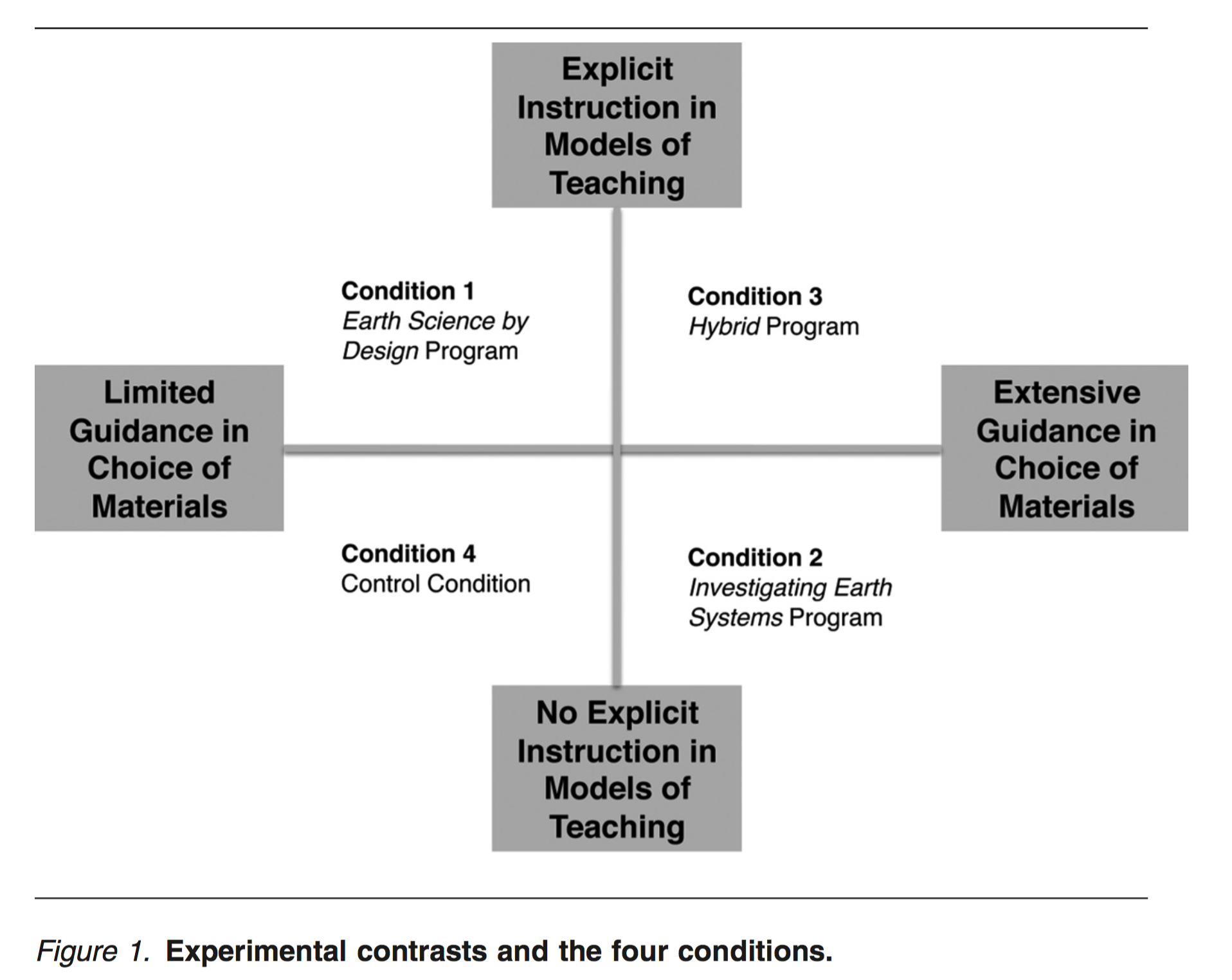
- Research questions
- Do students learn more Earth systems science when professional development guides them to select curriculum materials that are focused on learning goals when designing units of instruction?
- Do students learn more Earth systems science when professional development for their teachers provides them with explicit instruction in models of teaching?
- To what extent does variation in teachers’ enactment of models of teaching, whether these models are taught explicitly or not to teachers, account for differences in student learning?
- Roots of the problem – curriculum lacking the How
- “past two decades have been focused on the development of curriculum materials aligned to standards (National Research Council, 2006).” (Penuel, Gallagher, & Moorthy, 2011, p998)
- “few provide sufficient opportunities for students to investigate phenomena directly in a way that gives students an experience of doing science (Kesidou & Roseman, 2002)” (Penuel, Gallagher, & Moorthy, 2011, p998)
- Teachers will adapt – so design for that
- “importance of anticipating teachers’ uses of curriculum in planning professional development.” (Penuel, Gallagher, & Moorthy, 2011, p999)
- “organize professional development for productive adaptations.” (Penuel, Gallagher, & Moorthy, 2011, p1000)
- Teach the teaching models prescribed within the curriculum
- “provide teachers with explicit guidance or instruction in the models of teaching specified within materials” (Penuel, Gallagher, & Moorthy, 2011, p1000)
- not enough to put a side note within the written material – must model, enact it, and engage with it
- Understanding by Design
- “UbD is a framework for designing curricular units of instruction that centers on the big ideas, essential questions, and authentic performances (Wiggins & McTighe, 1998).” (Penuel, Gallagher, & Moorthy, 2011, p1002)
- Similar methodologies
- Project-based learning (Blumenfeld et al., 1991; Krajcik & Blumenfeld, 2006; Krajcik & Czerniak, 2007; Krajcik et al., 2008)
- 5E (Engage–Explore–Explain–Elaborate– Evaluate) instructional model (Bybee, 1997, 2004; Bybee et al., 2006)
- Study Methodology
- 3 PD interventions + control group (no PD intervention)
- Dimensions of differentiation
- Teachers received professional development in which they were guided to select materials focused on learning goals and that incorporated inquiry-oriented pedagogy
- Teachers received professional development that provided them with explicit instruction in models of teaching.
- Conditions
- 1) Earth Sciences by Design
- Prepares teachers to apply the principles of UbD
- No guidance on choice of materials
- 2) Investigating Earth Sciences
- No explicit instruction in the models of teaching
- Do not use external materials, only the ones in the website
- 3) Hybrid
- Explicit instructions in the models of teaching & Practice in the design of curricula
- Content should be at least 50% from the website – guidance provided in selecting external material
- 4) Control
- Simply given the curriculum – did not participate in any PD, even though they could
- 1) Earth Sciences by Design
- Findings
- “what is particularly important is that teachers develop the capacity to design sequences of instruction by learning a set of pedagogical principles that can guide their selection or adaptation of materials.” (Penuel, Gallagher, & Moorthy, 2011, p1020)
- “policy considers neither teachers nor curricula in and of themselves as agents of change.” (Penuel, Gallagher, & Moorthy, 2011, p1021)
Carlson, J. & Gess-Newsome, J. (April 2014). PCK in biology teachers resulting from professional development and educative curriculum materials. Paper presented at 2014 AERA Annual International Conference, Philadelphia, PA.
- PCK Indicators
- Describe the big ideas in a given content area and the relationship among those ideas.
- Articulate what they intend students to learn about those ideas.
- Understand why it is important for students to understand these ideas.
- Recognize the prerequisite knowledge that they as teachers must have to teach a concept.
- Understand the difficulties associated with teaching a particular concept.
- Draw upon a repertoire of ways to ascertain students’ understanding or confusion.
- Use knowledge about students’ thinking and context to influence instructional decisions.
- Present multiple representations for the teaching of a concept.
- Provide a rationale for the selection of teaching strategies and procedures.
- Educative Curriculum Materials
- Analyzing Instructional Materials (AIM) for Selection
- Key characteristics of transformative PD
- Create a high level of cognitive dissonance to disturb the equilibrium between teachers’ existing beliefs and practices and their experience with subject matter, students’ learning, and teaching;
- Provide time, contexts, and support for teachers to think and revise their thinking;
- Connect professional development experiences to teachers’ students and contexts; Provide a way for teachers to develop practices that are consistent with their new understandings
- Provide continuing help in the cycle of issue identification, new understanding, changing practice, and recycling.
- Hypothesis
- Increase teacher’s academic knowledge
- Improve their PCK
- Change their practice to be more inquiry-oriented.
- Challenges for the teachers in changing practice
- Students though, are not used to ‘thinking about how they think, think about what they know’
- Time
- Availability of lab materials
- Personal beliefs on what is important to teach and what students could learn
- Conflict in the goals of instruction (own or district’s)
- Conclusion
- It worked – using PD to discuss how to implement a curriculum worked.
- Expensive – time, money, and expertise required
- Teachers lacked depth and breadth of teaching strategies, or what is effective teaching
- Feel unsure or do not know what do once they uncovered students’ thinking
- Few teachers had a conceptual grasp of Biology as a whole, only silos of content

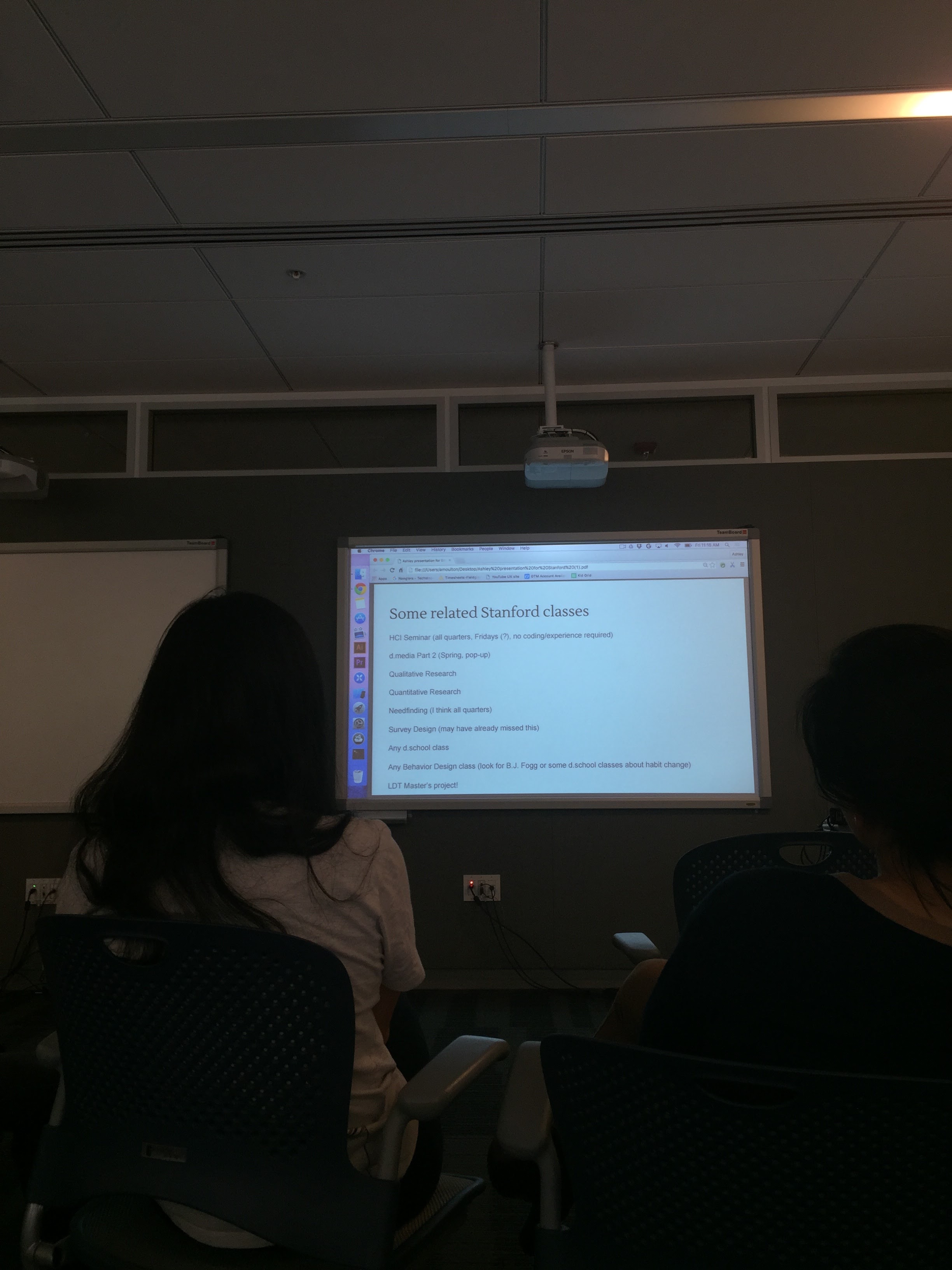
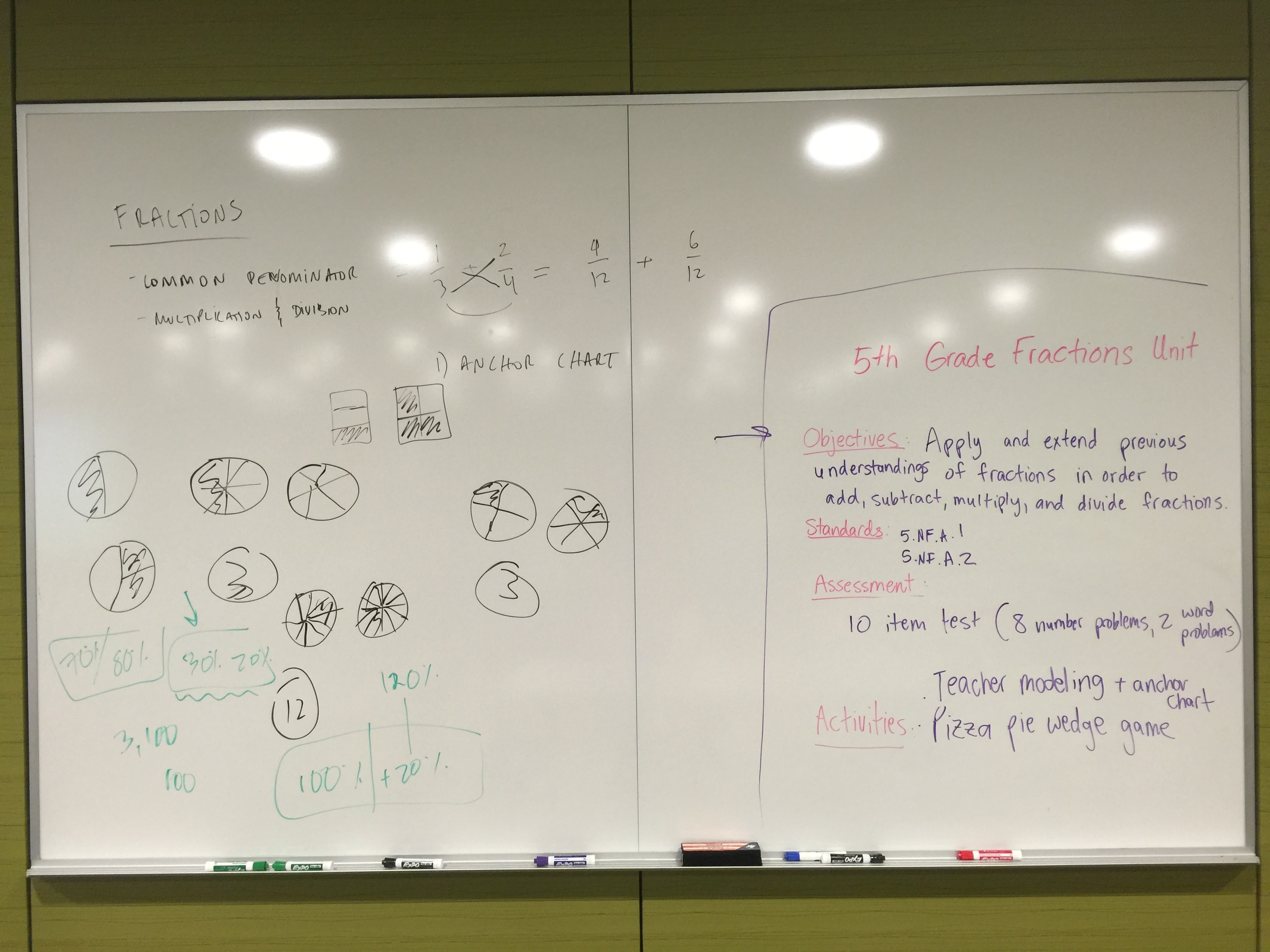
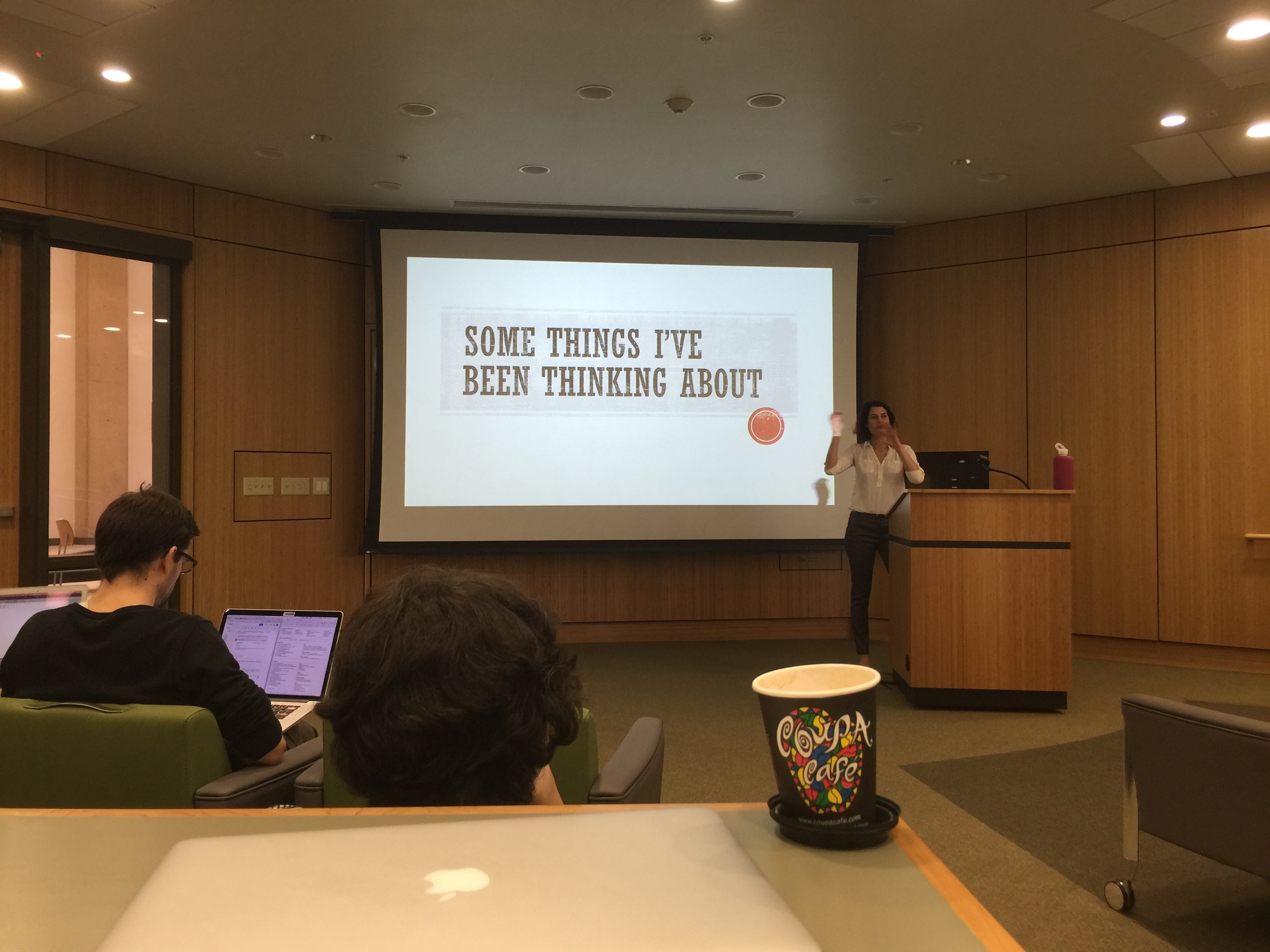
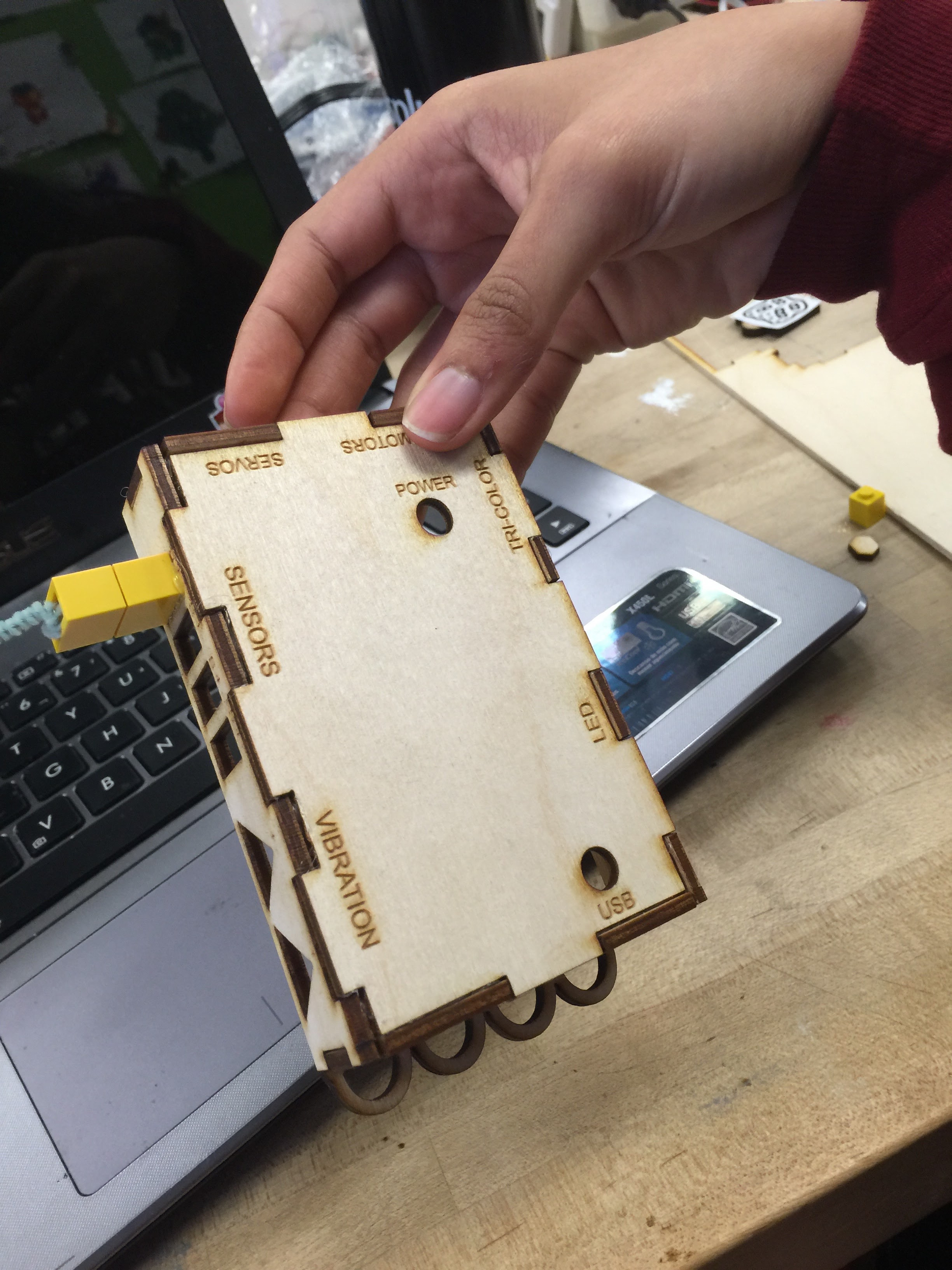

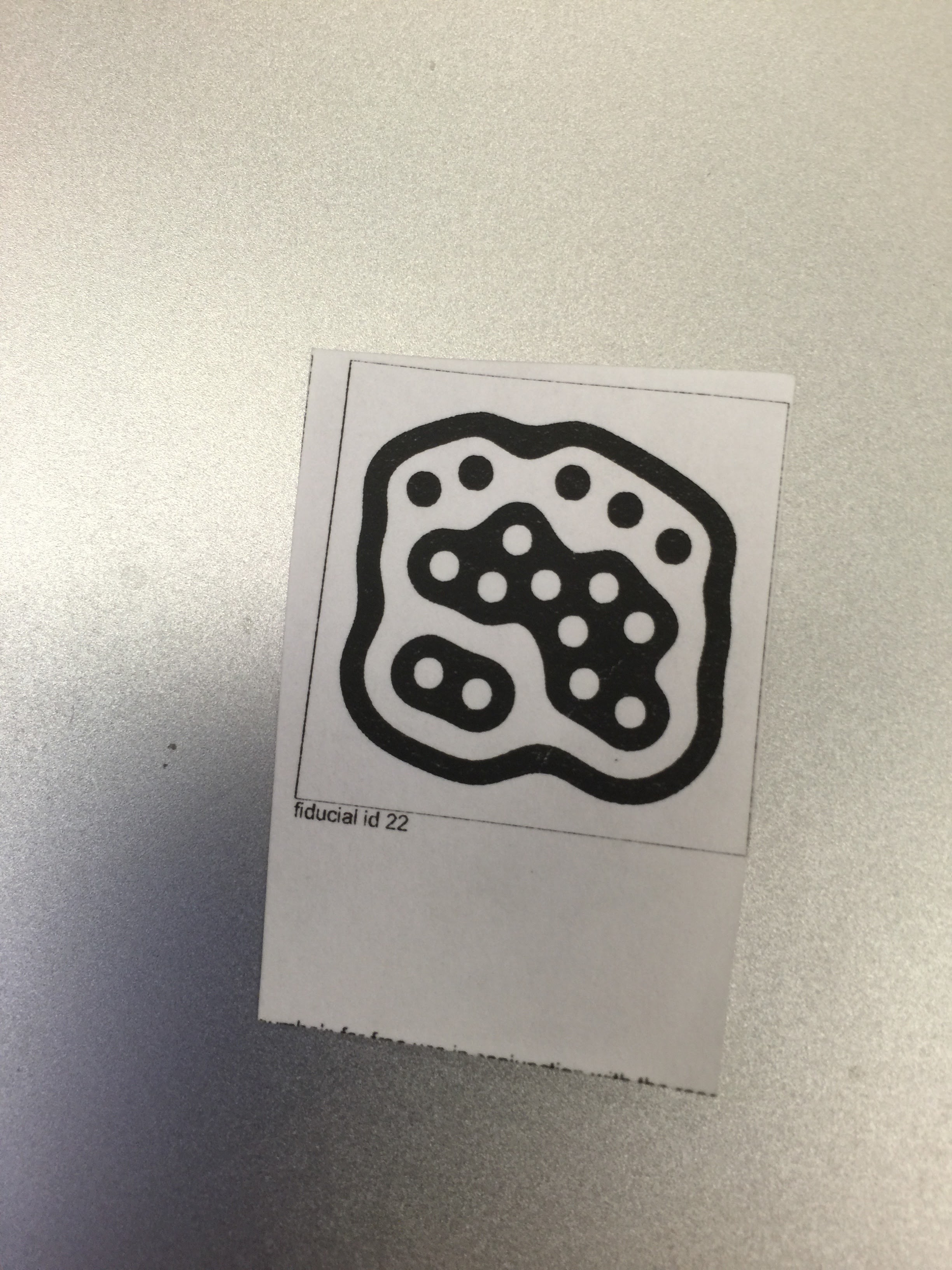
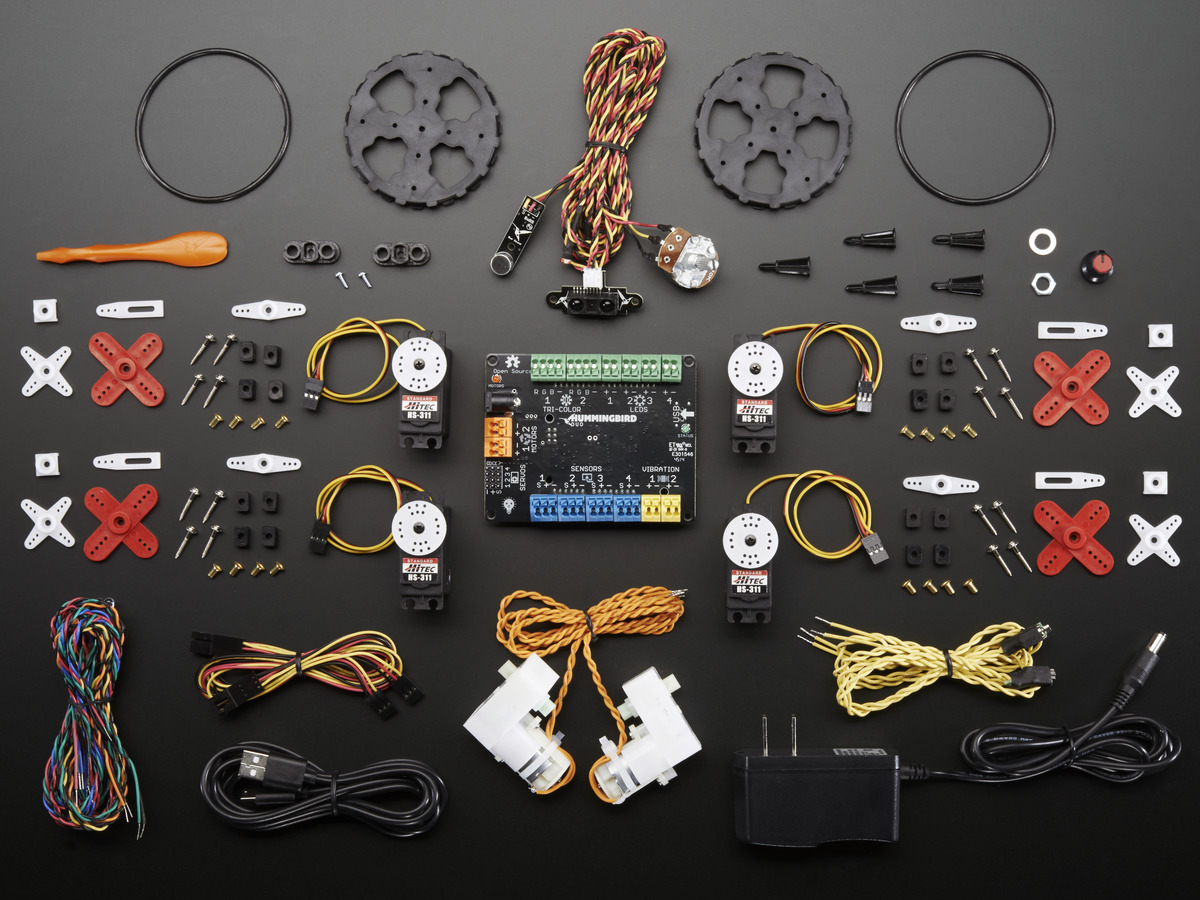 Hummingbird Robotics Kit
Hummingbird Robotics Kit